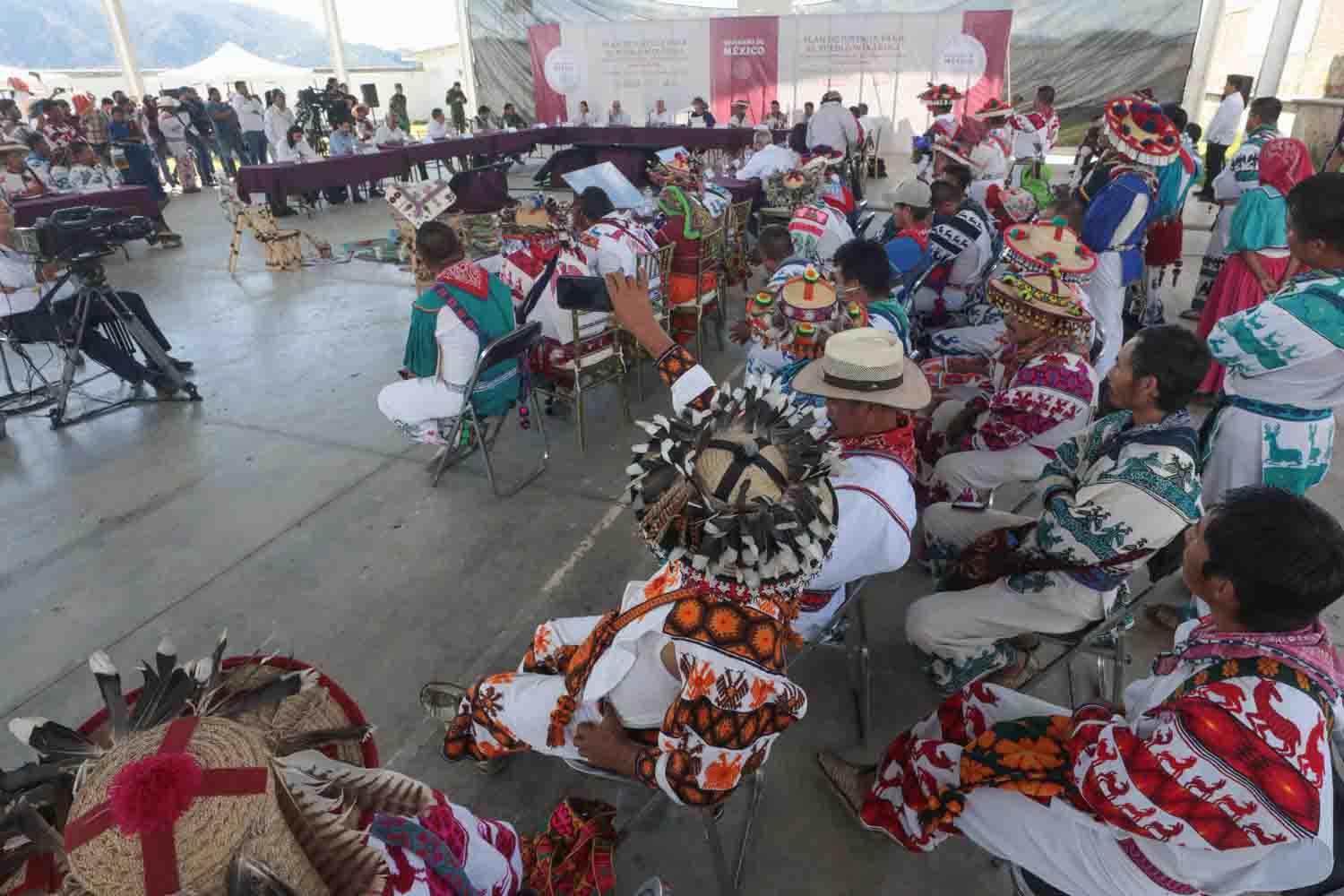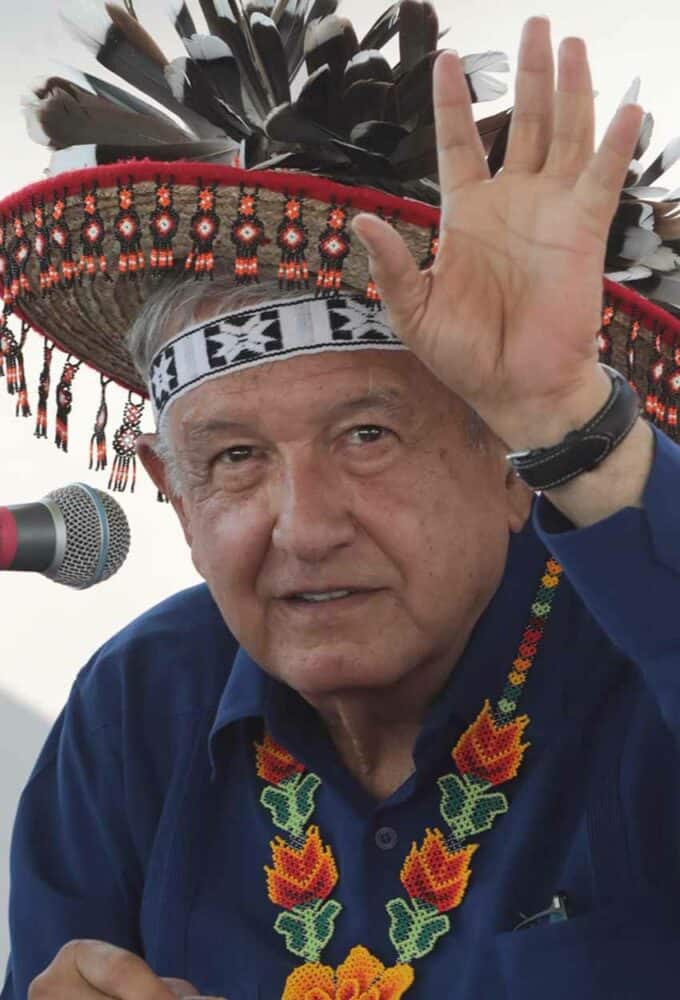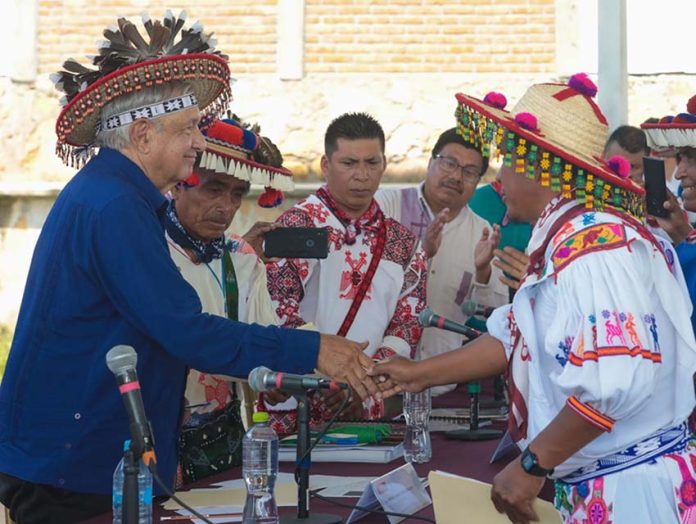Highlighting the presence of “very powerful” crime groups, President López Obrador on Saturday promised that the federal government would develop a security plan for the Gran Nayar, a mountainous region that encompasses parts of Nayarit, Jalisco, Durango and Zacatecas.
Speaking during a meeting with members of the Wixárika, or Huichol, community in Mezquitic, Jalisco, the president said he would ask Defense Minister Luis Cresencio Sandoval to present “a comprehensive plan for the entire region.”
He said that residents of indigenous communities in all four states that comprise the Gran Nayar had requested the presence of the National Guard, the three-year-old security force that superseded the Federal Police.
“The communities … have conserved the tranquility of their towns, but there are now very powerful crime groups and the support of the state is needed,” López Obrador said. “… We can build the necessary National Guard barracks so that you have security and protection, as you deserve,” he said.

Patricio Ortiz de la Cruz, an official in the Wixárika community of San Andrés Cohamiata, told the president that locals are “very concerned about the high levels of insecurity and violence in our region.” The presence of organized crime affects people’s capacity to move freely about the region and their daily lives, Ortiz said.
He and other representatives, — including the head of the National Institute of Indigenous Peoples, Adelfo Regino, called for National Guard barracks to be built in Mezquitic, the neighboring municipality of Bolaños and Valparaíso, Zacatecas.
“Reinforcing security in the already identified strategic points is essential,” Ortiz said.
The Jalisco New Generation Cartel is the dominant criminal organization in Jalisco and Nayarit, according to a recent report by the United States Congressional Research Service. In Zacatecas, the organized crime group is engaged in a turf war with the Sinaloa Cartel.

Formerly led by notorious drug lord Joaquín “El Chapo” Guzmán, the Sinaloa Cartel is the dominant criminal force in Durango, part of which is located within the opium poppy and marijuana-growing region known as the Golden Triangle.
At Saturday’s meeting, Wixárika representatives also presented a “plan for justice” for the Wixárika people. Among their main requests were the issuance of a decree to protect five sacred sites and assistance to recover lands of which they have been dispossessed over the years.
Ortiz said that the dispossession of land began in colonial times and hasn’t stopped, asserting that “our struggle has been tireless.”
The Wixárika people also called for improvements to educational, health care and highway infrastructure and the implementation of environmental programs. In response, López Obrador said that the federal government would “comply with the plan” presented to it.
“We’re going to confront the land problem, I feel that it’s the main problem in this region,” he said.
“It’s already been going on for a long time; there have been differences, there is confrontation and it’s very clear that it’s a fight between indigenous communities and small, medium and large private landowners,” López Obrador said.
“… There has to be an agreement so that the underlying problem is resolved. … We have to speak with the private landowners … and offer them alternatives, compensate them; it’s called indemnity,” López Obrador continued. “We can do it. … That’s what we’re doing to return the land that was taken from the Yaqui people.”
With reports from La Jornada, Milenio and Aristegui Noticias
